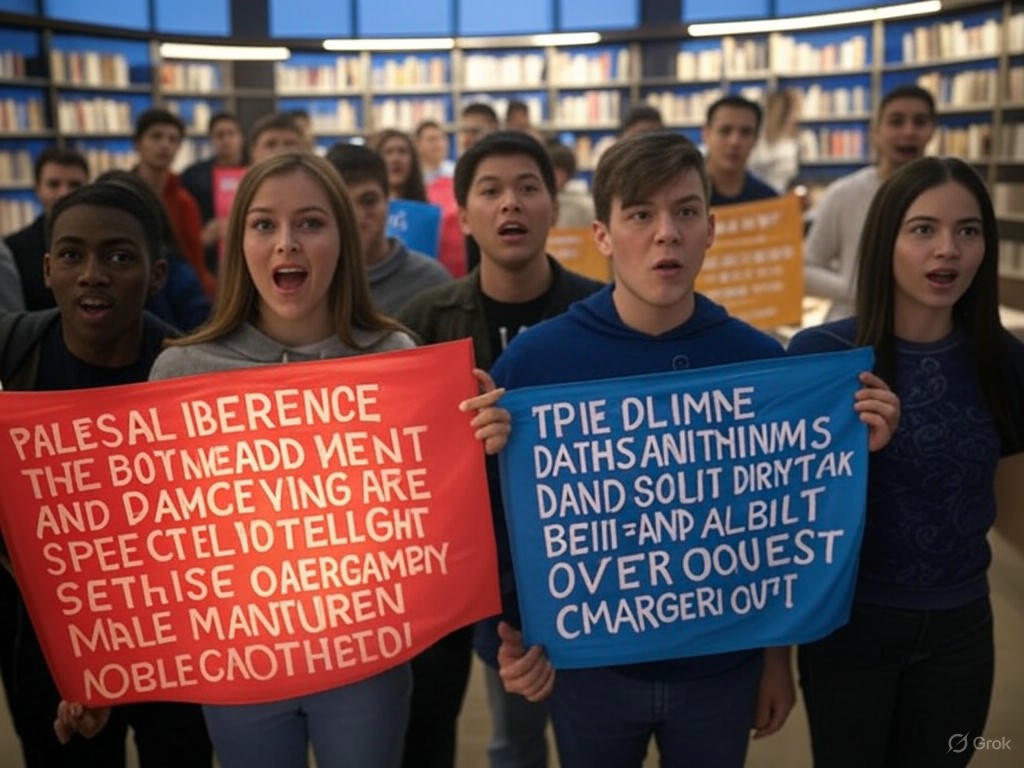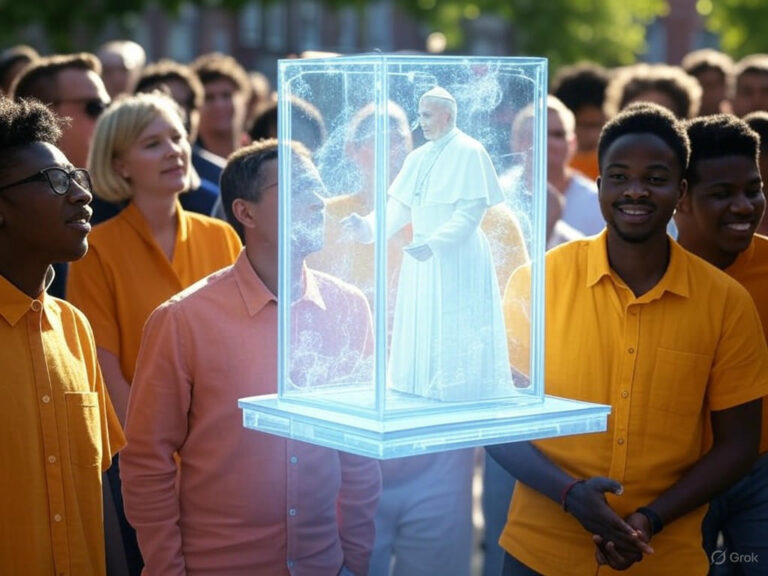
Columbia University Protests Injure Two Officers in Library Occupation
Campus Unrest Intensifies Amid Columbia University Protests
Have you ever wondered how a single protest can ripple through an entire university? At Columbia University, recent Columbia University protests took a dramatic turn when over 100 pro-Palestinian activists occupied Butler Library’s main reading room on Wednesday. This bold move, fueled by passion over the Israel-Hamas conflict, left two public safety officers injured and heightened tensions just as final exams loomed. It’s a stark reminder of how activism can collide with daily campus life, drawing national attention to issues of free speech and security.
The protesters, many wearing masks and waving Palestinian flags, transformed the library into what they called a “Liberated Zone.” This occupation wasn’t just symbolic; it amplified calls for Columbia University protests to address institutional ties to the conflict. As students scrambled to study for finals, the event raised questions about balancing activism with academic routines—could this be a turning point for how universities handle such disruptions?
Timeline of the Columbia University Protests at Butler Library
Let’s break down the key moments to understand the sequence of events. The Columbia University protests kicked off around 3:15 p.m., with demonstrators streaming into Butler Library. They quickly hung banners demanding “full financial divestment from Zionist occupation” and chanted slogans like “Free Palestine,” creating an electric atmosphere in the usually quiet space.
- Protesters outlined their demands in a public list, targeting university investments and calling for amnesty from disciplinary actions.
- This timing, right before finals, added extra pressure—imagine trying to cram for exams while chants echo through the halls.
- Security teams responded by locking down exits and checking IDs, turning the library into a fortified zone and escalating the situation further.
What started as a peaceful gathering soon intensified, highlighting why Columbia University protests often spark broader debates. For context, similar actions at other campuses have led to policy changes, so it’s worth asking: could this push Columbia to reconsider its stance on global issues?
University and Police Response to Columbia University Protests
When protests escalate, how do authorities react? In this case, Columbia’s administration swiftly called in the NYPD after the situation at Butler Library grew chaotic. Acting President Claire Shipman labeled the events “outrageous,” especially after two officers were injured during attempts to disperse the crowd.
Statements from University Leadership on the Protests
Shipman’s statement was clear and firm: “These disruptions of our campus and academic activities will not be tolerated.” This response underscores Columbia’s commitment to safety, but it also raises ethical questions about free expression during Columbia University protests. University rules emphasize zero tolerance for actions that threaten the community, yet many students argue that voicing concerns is a fundamental right.
For instance, a similar incident last year involved negotiations rather than immediate intervention, showing how responses can evolve. If you’re following these events, think about how this approach might influence future Columbia University protests.
Protesters’ Perspective and Demands During Columbia University Protests
From the activists’ viewpoint, groups like Columbia University Apartheid Divest (CUAD) saw the library occupation as a necessary stand. They shared videos online, framing it as resistance against “imperialist violence” and vowing that crackdowns would only strengthen their resolve.
- Top demands included divesting from companies linked to Israel and boycotting partnerships seen as complicit.
- They also pushed for full amnesty for anyone disciplined over protest activities, a common theme in Columbia University protests.
- It’s like a real-world tug-of-war: protesters want change, while the university prioritizes order.
This perspective isn’t isolated—across the U.S., students are using Columbia University protests as a model for their own advocacy. Have you considered how social media amplifies these voices, turning local events into global conversations?
Impact on Campus Life and Academic Schedules from Columbia University Protests
Timing is everything, and these Columbia University protests hit at the worst possible moment. With finals underway and commencement set for May 21, the occupation threatened to derail everything. Last year, protests forced graduation cancellations, a nightmare scenario administrators are eager to avoid.
The ripple effects extend beyond exams—students reported feeling stressed and distracted, wondering if their academic year would end smoothly. In a hypothetical scenario, what if your final study session turned into a protest rally? This situation highlights the delicate balance between activism and education in Columbia University protests.
Security Measures and the Aftermath of Columbia University Protests
In response, Columbia is ramping up security to prevent repeats. Expect tighter ID checks and clearer guidelines on protests, all aimed at safeguarding campus operations.
- Enhanced screening for building entry could become the new normal after these Columbia University protests.
- Disciplinary processes are being communicated more transparently to deter unauthorized actions.
- Support services, like counseling, are available for those affected—it’s a proactive step that might ease tensions.
Arrests and Injuries in the Midst of Protests
Reports confirm multiple arrests and injuries to two officers, though details remain limited. This outcome from Columbia University protests serves as a cautionary tale about the risks involved. As one expert noted in a recent analysis, “Escalations like this can lead to unintended consequences for all parties.”
Broadening the View: National Context of Columbia University Protests
Columbia isn’t alone; these protests mirror a nationwide trend where campuses grapple with activism over global conflicts. The core challenge? Balancing free speech with safety, a debate that’s intensified with Columbia University protests at the forefront.
Federal scrutiny is adding pressure, as seen in recent guidelines from education officials. For example, a study from the American Association of University Professors found that 70% of institutions face similar dilemmas—could Columbia’s handling set a precedent?
Comparative Snapshot: Columbia University Protests in 2025 vs. 2024
| Aspect | 2024 Protests | 2025 Butler Library Occupation |
|---|---|---|
| Location | Campus lawns and administrative buildings | Main Butler Library reading room |
| Primary Demands | Divestment, end of disciplinary actions | Expanded divestment, boycott, amnesty |
| Administrative Response | Dialogue and limited police involvement | Immediate police intervention and detentions |
| Academic Impact | Commencement canceled | Finals threatened, commencement at risk |
| Injuries/Arrests | No reported injuries | Two officers injured, multiple arrests |
This comparison shows how Columbia University protests are evolving, with 2025’s events feeling more urgent and direct.
Looking Ahead: Future of Columbia University Protests
What’s next? The university promises stricter enforcement, but student groups hint at more actions if demands aren’t met. As this unfolds, Columbia University protests could shape national policies on campus activism.
For the latest, check out the Columbia University Office of the President’s News Page, a reliable source for updates.
Key Takeaways from Columbia University Protests
- Over 100 activists occupied Butler Library, demanding divestment and amnesty amid Columbia University protests.
- Police intervention resulted in injuries and arrests, spotlighting safety concerns.
- This event underscores the ongoing tension between expression and order on campus.
Related Topics
Call to Action
What are your thoughts on Columbia University protests? Have you experienced something similar at your school? Share your insights in the comments below, or explore more on campus activism through our related articles. Let’s keep the conversation going—your perspective matters.
References
- Times of Israel. “Columbia University calls in police after anti-Israel activists invade library.” Link
- Politico. “Arrests made after protesters occupy Columbia University library.” Link
- Columbia University President’s Office. “Wednesday’s Disruption at Butler Library.” Link




